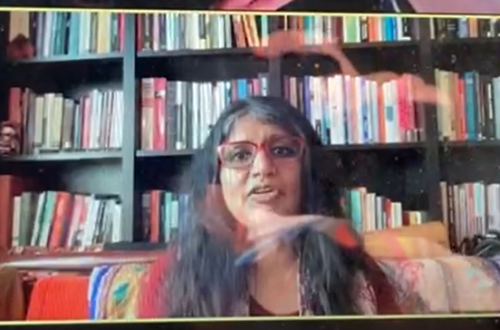Reading Giles Fraser’s recent article in support of circumcision made me wonder if he was a secret intactivist, so unconvincing did I find his particular line of argument. Here’s part of it:
“Without informed consent, circumcision is regarded as a form of violence and a violation of the fundamental rights of the child. Which is why I regard the liberal mindset as a diminished form of the moral imagination. There is more to right and wrong than mere choice.”
Of course there’s ‘more to right and wrong than mere choice’ – it seems to me to be a meaningless assertion really – and Fraser’s argument, or rather his rhetoric, could be used to excuse pretty much anything. The second and third sentences sound plausible – but I still can’t work out what they actually mean.
I don’t particularly want to dwell on the issue of circumcision which has been so widely discussed recently (there are current threads over on Bob from Brockley and Shiraz Socialist) but instead look at some of the more general principles behind Fraser’s thinking which he discusses in this recent piece.
Here he explains why he is not a liberal:
What I take to be the essence of liberalism is a belief that individual freedom and personal autonomy are the fundamental moral goods. But I don’t buy this. What we need is a much more robust commitment to the common good, to the priority of community. It is intellectual laziness and a form of cheating to think we can always have both.
It is indeed tricky to negotiate the balance between the sometimes competing needs of the individual and society. But once again I find Fraser’s argument hard to pin down. I do believe that individual freedom and personal autonomy are fundamentally good things. I also believe in a robust commitment to the common good, I think, but I pause on the phrase ‘the priority of community’. What exactly is meant by ‘community’, and indeed ‘priority’? If a community think x should marry y, and he doesn’t agree I’d give him priority. If x plays loud music all night and the community objects – I’m on their side. But what Fraser seems to do is to equate personal autonomy with nothing more than selfishness and consumer choice.
We have to choose. So, do we think the state ought to have a substantial vision of shared values, perfectly at ease with the language of right and wrong, and at times not at all uncomfortable about imposing that vision through taxation and legislation? Or do we think that the state ought to butt out and let us all get on with living our lives as we see fit?
Well – both really, as far as possible. So I resist Fraser’s insistence on the need to choose:
Just to be clear. I take it that socialists are happy with the former, using the levers of government to shape (impose, if you like) a fairer, more redistributive society. Liberals, whether of the pinstripe or lentil-eating varieties, are not. They don’t want any moral vision that they have not chosen for themselves, as individuals.
Both words can be used to mean different things but I think of myself more readily as a ‘liberal’ than as a ‘socialist’, so I disagreed with the second sentence. And in fact I think that Conservatives (though they might not reach instinctively for the word ‘redistributive’) also support this function of government.
There’s a potential disjuncture between Fraser’s line of argument here and his deeply felt views about circumcision. The inconsistency could equally well be illustrated with reference to ritual slaughter. The community (which Fraser likes) has decided that animal welfare is a good thing, and that it is morally right for animals to be stunned before they are killed. But a minority sufficiently small to be cast in the role of the individual has different views that go against the grain of the community. According to Fraser’s logic – aren’t these people selfishly insisting on consumer choice rather than just going along with the preferences of the majority?


